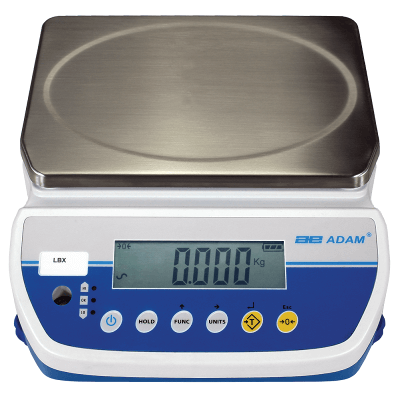Counting scales are an essential tool for many businesses, allowing them to accurately count and measure small items and parts. When choosing a counting scale, there are several key factors to consider to ensure you select the best option for your needs.
Counting scales are versatile weighing machines that can be used for counting and weighing objects simultaneously. Typical applications include checkweighing, for checking the weight of objects against a pre-set limit to performing accurate parts counting procedures to reduce manual counting.
Counting scale benefits
Counting scales are especially common in quality assurance departments and retail distribution warehouses for checking the number of pieces in a lot before being approved for dispatch. In addition, other manufacturing based businesses such as printers, CD manufacturers, metal workers and plumbing supply companies often use counting scales. For example, plumbing supply companies can count the number of copper fittings they have left in a box, or update their hardware count without having to manually count each piece. They are also very useful for inventory taking, manufacturing and packaging. They allow you to not only check the number of pieces in a lot, but also to create lots that always have the right amount of material, and are perfect for counting a large amount of the same material.
Factors to consider
Capacity: The first thing to consider is the capacity of the scale. This refers to the maximum weight it can measure. Be sure to choose a scale with a capacity that exceeds the weight of the items you will be counting.
Resolution: The resolution of a scale refers to the smallest increment of weight it can measure. The higher the resolution, the more precise the measurement will be. For counting small items, a high resolution is essential.
Accuracy: The accuracy of a scale refers to how close its measurements are to the actual weight of an item. It's important to choose a scale that is accurate within a small margin of error.
Interface: The interface of a counting scale is the means by which you enter data and read results. Look for a scale with a user-friendly interface that makes it easy to input data and read results.
Connectivity: Many counting scales can connect to other devices, such as printers and computers, for data storage and analysis. If this is an important feature for you, make sure to choose a scale with the appropriate connectivity options.
Durability: Lastly, consider the durability of the scale. A counting scale that is built to last will save you time and money in the long run.
closing words
By considering these factors, you can select a counting scale that is well-suited to your needs and will provide accurate and reliable measurements for years to come.
Affordable and easy-to-use bench scales provide the functions and precision required by businesses ranging from small offices to large factories. Bench scales can provide professional weighing solutions within a limited budget and can be used almost anywhere. A well maintained scale will extend its overall lifespan, so proper maintenance is a must.
For a more in-depth look at what bench scales entail, then head over to our products Page. Be sure to read up on other articles like how much do truck scales cost or even truck scale foundations. We also have articles on warranties, scale accessories and a guide for scale calibrations and our popular common problems with bench scales.

